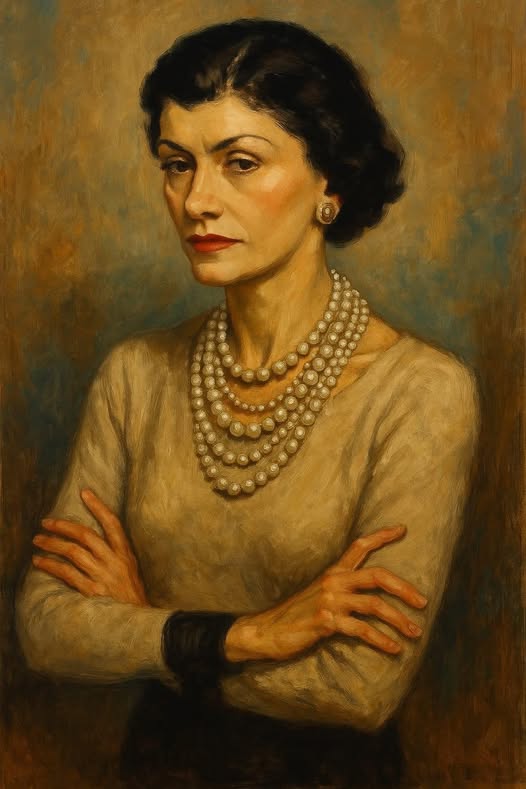
“No one taught me to sew, you know? I learned because I had to. It wasn’t art at first… it was survival.”
I was born into poverty. My mother died when I was twelve. My father — a coward — walked away as if we were nothing.
I ended up in a cold, grey orphanage, where the echo of prayers blended with the sound of tearing fabric. The nuns taught me to sew.
“To give you a decent life, Gabrielle,” they said, pointing their bony fingers at my poorly cut fabric.
But I didn’t want a “decent” life.
“Decent? What does that even mean? To be quiet and clean?” I once asked.
Sister Bernadette glared at me.
“It means not ending up on the street again,” she snapped.
But in my head, something else had already caught fire:
I didn’t want to survive. I wanted to soar.
Every stitch I made was a declaration: I will become.
I sewed in silence — but inside, I was screaming. No one would decide for me.
Years later, when I started selling my first hats, people laughed:
“A woman with her own shop? How absurd.”
“The daughter of a street vendor thinks she’s a designer? How presumptuous.”
They had no idea who they were talking to.
One man once said smugly:
“You made this? But it’s elegant… I thought it was from Paris.”
“It is,” I smiled. “Because I am Paris. You just don’t know it yet.”
With every hat I sold, with every dress I cut without following the rules, I got closer to the woman I dreamed of becoming:
Free. Elegant. Unapologetic.
No corsets. No permission. No fear.
I cut my hair short when every woman wore it long.
“You look like a boy,” a friend said, horrified.
“No,” I replied. “I look like me.”
And I loved it.
They called me rebellious, insolent, even vulgar.
But they never called me obedient.
I saw wars tear everything apart. I saw my stores shut down during the occupation.
I heard them say:
“Chanel is finished. Her time is over.”
But they didn’t know me.
I returned to Paris when everyone thought I was history — and proved I still had chapters to write.
I wasn’t just a brand. I was a statement.
A war cry against conformity.
Chanel Nº 5?
Yes, they say it’s the most famous perfume in the world.
But my real fragrance? It smelled like defiance.
“What does courage smell like?” a young designer once asked me.
“Like not giving up,” I said.
“Like perfume with scars.”
And if I could tell that little girl crying on her orphanage bed one thing, it would be this:
“Don’t let the mud you were born in stop you from blooming. The strongest flowers grow from ruins.” — Coco Chanel
